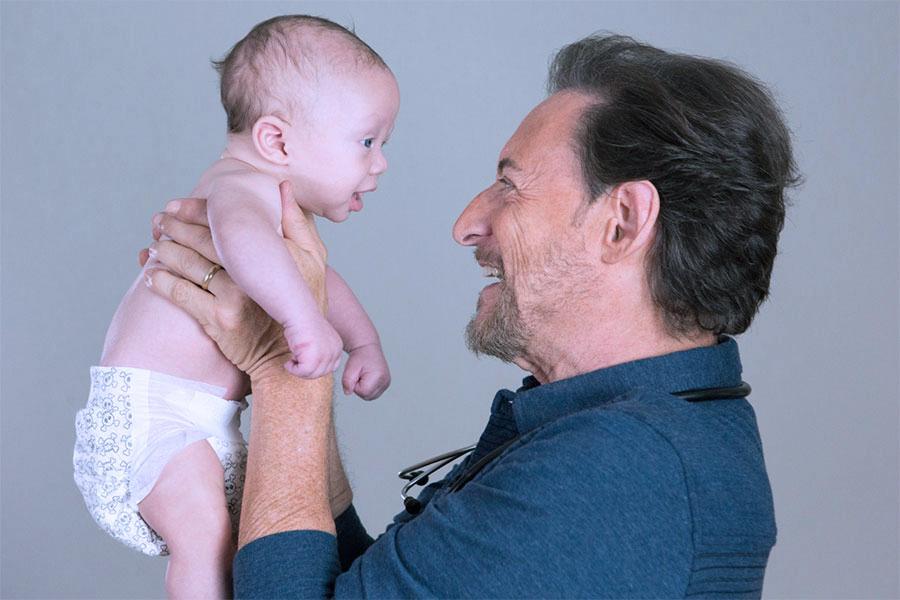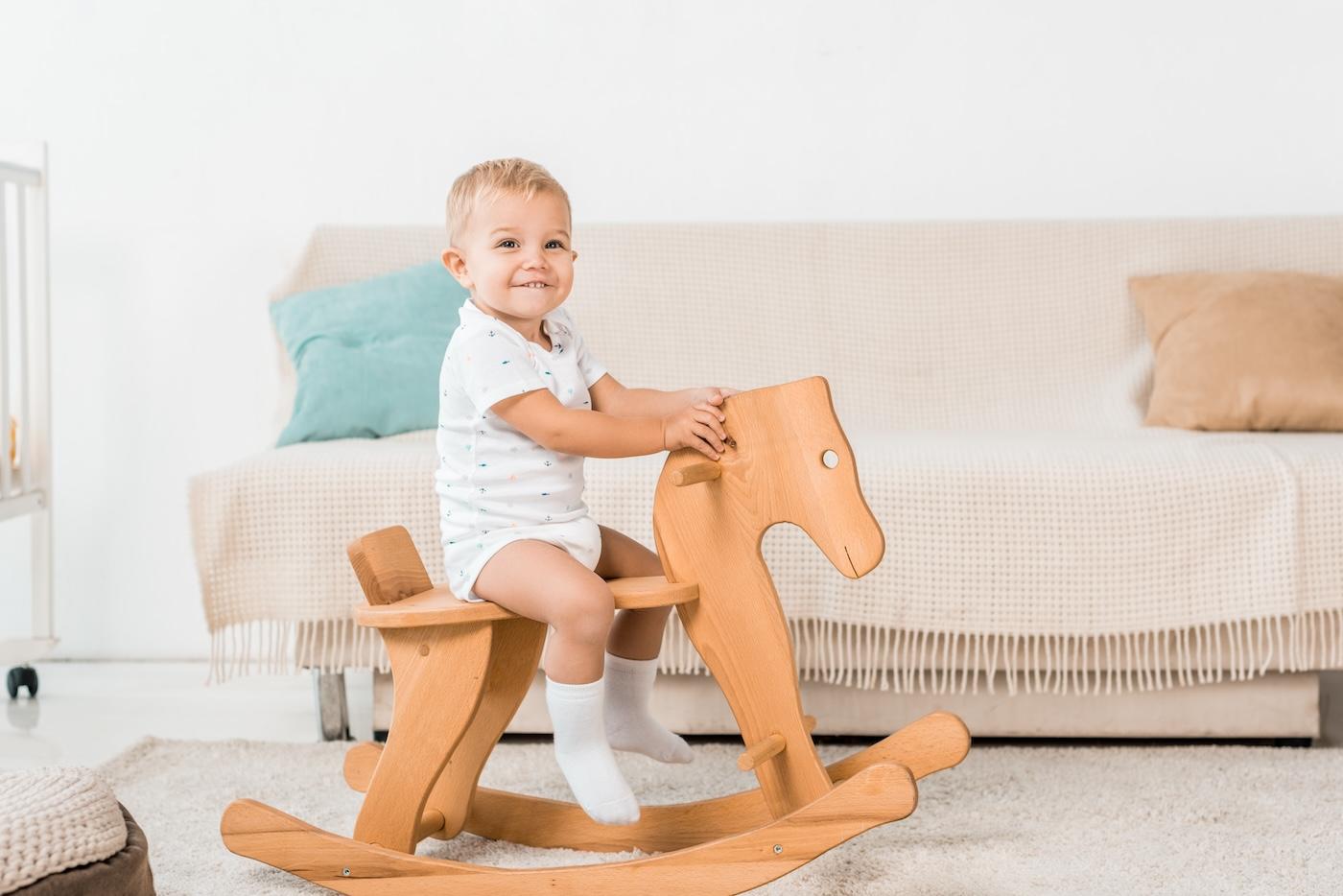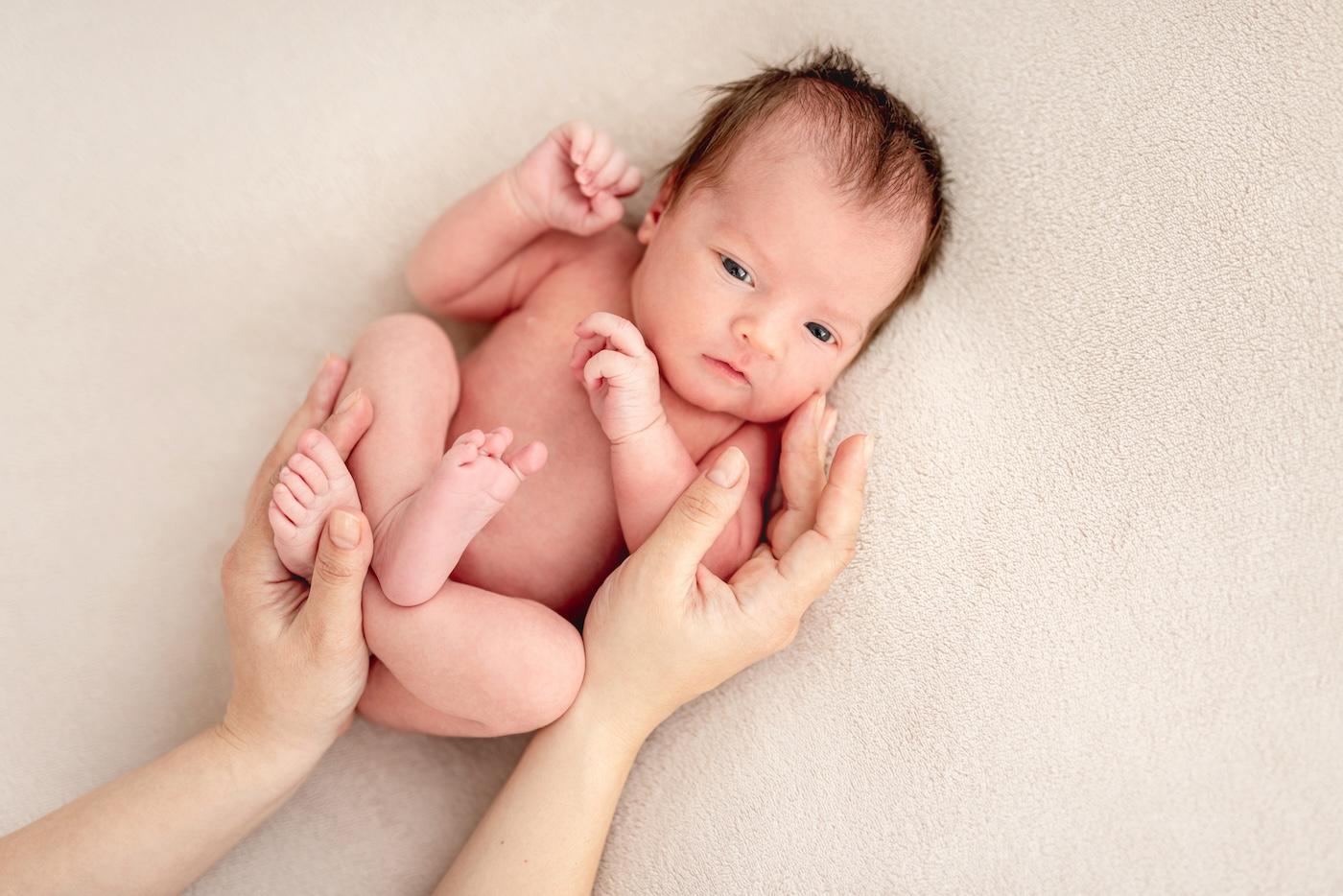BABY
The 4 Main Temperaments of Babies
Luckily...most babies are mild tempered!

Written by
Dr. Harvey Karp

What is Your Baby’s Temperament?
Think of your baby like a boat and her temperament as the sea she sails on. Infants with a stable boat (good self-calming ability) on a smooth sea (a calm baby temperament) sail easily through the first year. But unstable boats (poor self-calming ability) or rocky seas (challenging temperament) make babies prone to being pushed into crying by the day’s tumult of sensations.
Luckily...most babies are mild tempered!
Easy Baby Temperament
Mellow from the first days of life, these babies register their complaints with mild fussing, as if to say, ‘Please Mummy, it is a little bit too bright in here!’
These little ‘surfer dudes’ have no trouble taking the craziness of the world in stride.
However, babies who are sensitive or intense—or, heaven help you, both—often launch into screaming outbursts, like boats tossed in a storm.
Challenging Baby Temperament: Little Babies with Big Personalities
Lizzy and her twin Jennifer were like peas in a pod, both super sensitive babies when it came to noise and sudden jolts. When unhappy, they cried with deafening force. Their one difference: Jenny could eventually quiet her own upsets, but once Lizzy’s screams got rolling, she had no ability to rein herself in.
Infants like Lizzy are tough because their personalities are too big for them to handle. They are often given funny nicknames by parents who are trying to laugh – rather than cry—during the difficult early days and nights. Amanda’s parents christened her “Demanda,” Charlotte’s mom called her “Gassy Gussy,” and Lachlan’s parents dubbed him “General Fuss-ter.”
Two types of baby temperament are particularly challenging: babies who are sensitive to everything… and those who are super-passionate and intense.
Sensitive Infant Temperament
Do you have extra-sensitive friends or relatives who get annoyed by sounds, messy rooms, or strong smells? Similarly, sensitive newborns tend to jump when the phone rings or yelp at the taste of lanolin on the nipple. Alert and pure as crystal, these infants are open to everything around them… and have great difficulty self-soothing once crying starts.
If your newborn’s temperament is extra-sensitive, you may notice that she occasionally looks away from you during feeding or playtime. This ‘gaze aversion’ is not a sign that she does not like you or does not want to look at you. It usually just means you have gotten a little too close. (Imagine a ten-foot face suddenly coming right in front of your nose. You, too, might need to look away!) Move back a half to a full meter to allow a bit more space between her eyes and your face.
Intense Infant Temperament
All babies experience flashes of frustration. Calm kids take these in stride, but intense babies have temperaments that tend to explode. It is as if the ‘sparks’ of every distress fall into the ‘dynamite’ of their volatile temperaments … and Kapow! And, once these babies are wailing, stopping the upset may be hard, even when they get what they seem to want.
Jackie witnessed this intense crying when her passionate two-month old got hungry.
Jeffrey would announce his hunger by letting out a ‘Feed me or I am going to die!’ shriek and I would leap off the sofa, pulling my breast out as I ran to him. But he would often ignore my dripping boob at his mouth and continue to cry, shaking his head from side to side as if he were blind!
I was worried that he might think of my breast as a hand trying to silence him rather than my loving attempt to rescue him. Despite his protests, I persisted until he could latch on. And then, lo and behold, he would eat as if I had not fed him in months.
Jackie smartly realised that Jeffrey was not intentionally ignoring her; he was just an itty bitty baby…dealing with a great big personality.
Does a Baby’s Temperament Last a Lifetime?
As babies grow up, they do not get less intense or sensitive, but they do develop skills to help balance their temperamental swings. By 3 months old, your baby’s smiling, cooing, rolling, grabbing, and chewing will help her handle excitement and annoyance. And another month or two after that she will add the superb self-soothing skills of laughter, mouthing objects, and moving about.
With time, the excitement that used to ignite her shrieks will start a bubbly flow of giggles. So if you have a challenging baby, do not lose heart. Passionate infants often become the biggest laughers and most talkative members of the family. (‘Hey Mom, look! Look! It is incredible!’) And sensitive infants often grow into the most compassionate and perceptive children. (No, Mom, it is not purple. It is lavender.”)
If you need additional advice for dealing with your baby’s temperament and helping your little one learn to self-soothe, pick up a copy of The Happiest Baby on the Block.
Disclaimer: The information on our site is NOT medical advice for any specific person or condition. It is only meant as general information. If you have any medical questions and concerns about your child or yourself, please contact your health provider. Breastmilk is the best source of nutrition for babies. It is important that, in preparation for and during breastfeeding, mothers eat a healthy, balanced diet. Combined breast- and bottle-feeding in the first weeks of life may reduce the supply of a mother's breastmilk and reversing the decision not to breastfeed is difficult. If you do decide to use infant formula, you should follow instructions carefully.
SHARE THIS ARTICLE
PARENT PICKS
Bestsellers



















